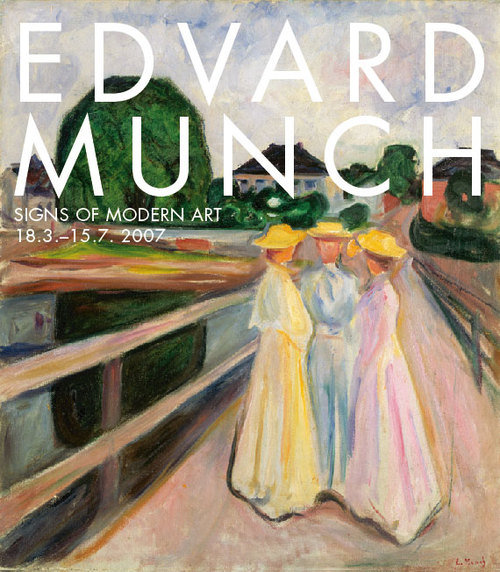Edvard Munch
dal 17/3/2007 al 14/7/2007
Segnalato da
17/3/2007
Edvard Munch
Fondation Beyeler, Basel
Signs of Modern Art. This retrospective review focuses on Munch's significance as predecessor and founder of Expressionism, and his essential and highly original contribution to the emergence of modern art. Approximately 120 paintings, 60 drawings and prints from every phase of the artist's career will be on view. The first special exhibition in its jubilee year to the Norwegian painter and graphic artist.

Signs of Modern Art
The Fondation Beyeler is devoting the first special exhibition in its jubilee year to the Norwegian painter and graphic artist Edvard Munch (1863–1944). This retrospective review focuses on Munch’s significance as predecessor and founder of Expressionism, and his essential and highly original contribution to the emergence of modern art.
Munch’s concern with profound emotions and fears such as loneliness and love, and his facing of the reality of death, led to uncompromising and compelling imagery. Growth and decay, creation and destruction were his themes, evoked in multifarious ways. Munch continually overstepped the traditional boundaries between painting and printmaking, often employing photography as well. As early as the fin de siècle, his unconventional handling of motifs and materials anticipated advances in twentieth-century art to come.
Approximately 130 paintings, 80 drawings and prints from every phase of the artist’s career will be on view. This will make the show one of the largest Munch exhibitions ever held outside Norway.
The Riehen exhibition brings together loans from numerous American and European museums, and in addition to Munch’s major works, presents for the first time a large number of previously unavailable private loans. The exhibition is curated by Dieter Buchhart, in collaboration with Christoph Vitali, Ulf Küster and Philippe Büttner.
The exhibition is accompanied by a copiously illustrated catalogue, published by Hatje Cantz Verlag, Ost-fildern, containing essays by Dieter Buchhart, Øivind Storm Bjerke, Philippe Büttner, and Ulf Küster, as well as chapter introductions.
Film Program in March and April
In parallel with the exhibition, Stadtkino Basel is showing a range of films by the Swedish director Ingmar Bergman. Like Munch, Bergman was a master of psychological drama. For program details, please consult www.stadtkinobasel.ch
"Edvard Munch – Radicality in the Self-Portrait" (in German)
by Iris Müller-Westermann, Curator, Moderna Museet, Stockholm
Lecture, Wednesday, 28 March, 6.45 – 8.00 p.m.
"Edvard Munch – The Duality of a Material-Based Modernity" (in German)
by Dieter Buchhart, Guest Curator of the Munch exhibition
Lecture, Wednesday, 25 April, 6.45 – 8.00 p.m.
Open House
Admission free. Acrobatics with David Dimitri. Circus Maus. Art and culture program for the young and young at heart. Film festival. Culinary delights. A competition, and much more.
Sunday, 13 May, 10.00 a.m. – 9.00 p.m.
Jon Fosse meets Edvard Munch
In the exhibition rooms, Katja Jung and Thomas Reisinger read texts (in German translation) by the Norwegian author Jon Fosse (born 1959).
Reading, Tuesday, 29 May, 6.45 – 8.00 p.m.
Tour Fixe
Tues., Thurs., Fri. 3.00 – 4.00 p.m.
Wed. 5.30 – 6.30 p.m.
Sat., Sun. 12.00 – 1.00 p.m.
Tours through the exhibition are held on a regular basis. Number of participants limited. No reservations can be accepted.
Press Contact
Catherine Schott Art Media Relations E-Mail: presse@beyeler.com
Fondation Beyeler
Baselstrasse 101, Riehen - Basel
Opening hours of the special exhibition: 10 a.m. – 6 p.m. daily, Wednesdays until 8 p.m.
Admission: Ch 21/18/12



